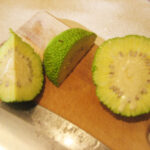
Are Plover Eggs Safe to Eat and a Gourmet Delicacy?

The consumption of eggs is a common practice worldwide, with chicken eggs being the most popular. However, there are many other types of eggs that are also consumed, including those from ducks, quails, and even ostriches. One type of egg that is not as well-known but has gained attention is the plover egg.
We will explore the topic of plover eggs and whether they are safe to eat. We will discuss the nutritional value of these eggs, their taste and texture, and any potential health risks associated with consuming them. Additionally, we will delve into the status of plover eggs as a gourmet delicacy and their cultural significance in certain regions. By the end of this article, you will have a better understanding of plover eggs and whether they might be a unique addition to your culinary repertoire.
- Yes, plover eggs are safe to eat and are considered a gourmet delicacy
- Plover eggs are often enjoyed in fine dining establishments
- These eggs are known for their rich flavor and unique texture
- Many chefs consider plover eggs to be a prized culinary ingredient
- Plover eggs can be prepared in various ways, such as poached or scrambled
- When cooked properly, plover eggs provide a delightful dining experience
- It is important to source plover eggs from reputable suppliers to ensure their safety
- Plover eggs are a popular choice among adventurous food enthusiasts
- Some people describe the taste of plover eggs as similar to chicken eggs but with a more intense flavor
- Enjoying plover eggs is often considered a special treat for food connoisseurs
- Frequently Asked Questions
Yes, plover eggs are safe to eat and are considered a gourmet delicacy
Many people may be unfamiliar with plover eggs and may wonder if they are safe to consume. The good news is that plover eggs are indeed safe to eat and are even considered a gourmet delicacy by many.
Plovers are a type of shorebird that lay small, speckled eggs. These eggs are highly prized for their unique flavor and texture, making them a sought-after delicacy among food enthusiasts.
When it comes to safety, plover eggs are no different from other types of eggs commonly consumed. As with any egg, it is important to ensure that they are fresh and properly cooked to eliminate the risk of foodborne illnesses.
There are several ways to enjoy plover eggs. They can be prepared in various ways, such as poached, scrambled, or used in baking recipes. The rich and creamy yolk of plover eggs adds a distinct taste to any dish.
 Are Succulents Safe to Eat? Exploring the Suitability of Consuming Succulent Plants
Are Succulents Safe to Eat? Exploring the Suitability of Consuming Succulent PlantsBenefits of Eating Plover Eggs
Plover eggs are not only delicious but also offer several nutritional benefits. They are packed with protein, vitamins, and minerals, making them a nutritious addition to your diet.
- Protein: Plover eggs are an excellent source of high-quality protein, which is essential for building and repairing tissues in the body.
- Vitamins: These eggs are rich in vitamins such as vitamin A, vitamin B12, and vitamin D, which play a crucial role in maintaining overall health.
- Minerals: Plover eggs are a good source of minerals like iron, phosphorus, and selenium, which are important for various bodily functions.
Not only do plover eggs provide nutritional benefits, but they also offer a unique culinary experience. Due to their scarcity and delicate flavor, plover eggs are often considered a luxury item and can be a special treat for those who appreciate fine dining.
Plover eggs are safe to eat and are highly regarded as a gourmet delicacy. Whether you are a food enthusiast looking to try something new or simply curious about unique culinary experiences, plover eggs are definitely worth exploring.
Plover eggs are often enjoyed in fine dining establishments
Plover eggs have long been considered a delicacy in the culinary world, particularly in fine dining establishments. These small, speckled eggs are highly sought after for their unique flavor and exquisite texture.
While plover eggs are a gourmet treat, there has been some debate about their safety for consumption. Some argue that eating plover eggs can have negative impacts on bird populations, as their collection may disrupt nesting habits and potentially harm the species.
However, it is important to note that plover eggs are only harvested from sustainable and regulated sources. Many countries have strict laws and regulations in place to protect the bird species and ensure the eggs are collected responsibly.
 Are Succulents Safe for Rabbits to Eat?
Are Succulents Safe for Rabbits to Eat?The appeal of plover eggs
What makes plover eggs so sought after by chefs and food enthusiasts alike? The answer lies in their unique flavor profile and texture. Plover eggs have a rich, creamy taste that is often described as slightly gamey with a hint of sweetness.
Additionally, the texture of plover eggs is incredibly smooth and velvety, making them a delight to eat. Their small size adds to the overall appeal, as they can be elegantly presented and enjoyed as a bite-sized delicacy.
The ethical debate
Despite their culinary appeal, the consumption of plover eggs has sparked an ethical debate. Some argue that the collection of these eggs can harm bird populations and disrupt their natural breeding patterns. This has led to efforts to protect plover species and promote sustainable practices in the collection of their eggs.
It is important to note that in many countries, the collection of plover eggs is tightly regulated, with strict quotas and guidelines in place to ensure the survival of the species. These regulations often involve restricting the collection to specific periods and locations, allowing the birds to successfully hatch and rear their young.
While plover eggs are indeed a gourmet delicacy enjoyed by many, it is crucial to respect the ethical considerations surrounding their consumption. By supporting sustainable practices and responsible sourcing, we can ensure the long-term survival of plover species while still savoring the unique flavors and textures that these eggs offer.
These eggs are known for their rich flavor and unique texture
Plover eggs are a fascinating topic of discussion among food enthusiasts and those who appreciate gourmet delicacies. These eggs are known for their rich flavor and unique texture, making them a sought-after ingredient in many culinary preparations.
 The Benefits of Using Coffee Grounds for Succulent Growth and Health
The Benefits of Using Coffee Grounds for Succulent Growth and HealthOriginating from various species of plovers, these eggs offer a distinct taste that sets them apart from other types of eggs. Their flavor can be described as slightly gamey, with hints of saltiness and a subtle sweetness. The texture of plover eggs is often compared to that of caviar, with a smooth and creamy consistency.
But are plover eggs safe to eat? This question has been a subject of debate due to the conservation concerns surrounding some species of plovers. Some plovers are considered endangered or threatened, and their eggs are protected by law to ensure their survival.
Legal and ethical considerations
Before considering consuming plover eggs, it is crucial to understand the legal and ethical implications. In many countries, the collection and trade of plover eggs are strictly regulated or prohibited. This is done to protect the populations of these birds and prevent their extinction.
Additionally, harvesting and consuming plover eggs may have negative ecological impacts. Plovers play an important role in maintaining the balance of ecosystems, particularly in coastal areas where they nest. Disturbing their nests or taking their eggs can disrupt their breeding patterns and lead to population decline.
Alternative options for egg enthusiasts
For those who are curious about exploring unique and gourmet egg options without compromising ethical and environmental considerations, there are alternative options available.
- Quail eggs: Quail eggs are small, delicate, and packed with flavor. They are often used in upscale restaurants and are a popular choice for appetizers and garnishes.
- Duck eggs: Duck eggs are larger than chicken eggs and have a rich, creamy taste. They are commonly used in baking and are particularly prized for their ability to create light and fluffy pastries.
- Emu eggs: Emu eggs are a unique option for those seeking an exotic egg experience. These eggs are significantly larger than chicken eggs and have a rich, buttery flavor.
Exploring these alternatives can provide egg enthusiasts with a diverse range of flavors and textures, while ensuring the sustainability and well-being of bird populations.
In conclusion, while plover eggs may be considered a gourmet delicacy, it is important to prioritize the conservation of these birds and their habitats. By exploring alternative options and making informed choices, we can enjoy unique culinary experiences without compromising the delicate balance of nature.
 Succulent Leaves: Health Risks and Benefits of Eating
Succulent Leaves: Health Risks and Benefits of EatingMany chefs consider plover eggs to be a prized culinary ingredient
Plover eggs, known for their delicate flavor and unique texture, have become increasingly popular among chefs and food enthusiasts alike. These small eggs, laid by various species of plovers, are often considered a gourmet delicacy and are highly sought after in the culinary world.
One of the reasons why plover eggs are highly regarded is their rarity. Plovers, being migratory birds, nest in specific habitats during limited periods of the year. This makes the collection of their eggs a challenging and time-sensitive task. As a result, plover eggs are not readily available in large quantities, adding to their exclusivity and desirability.
When it comes to taste, plover eggs are often described as having a rich, buttery flavor with subtle hints of earthiness. The texture of these eggs is also unique, with a creamy and smooth consistency that is highly enjoyable to the palate.
Preparing and cooking plover eggs
Due to their delicate nature, plover eggs require careful handling and precise cooking methods to fully enhance their flavors. Chefs often opt for simple preparations that allow the natural taste of the eggs to shine through.
One popular method of cooking plover eggs is to soft-boil or poach them. This ensures that the yolks remain slightly runny, creating a luscious and indulgent experience when paired with other ingredients. Plover eggs can also be used in various recipes, such as omelets, custards, or even as a luxurious topping for dishes like pasta or risotto.
Legal and ethical considerations
While plover eggs may be considered a gourmet delicacy, it is essential to address the legal and ethical concerns surrounding their consumption. Many countries have strict regulations in place to protect migratory bird populations, including plovers. It is crucial to ensure that the eggs being used for culinary purposes are sourced responsibly and in accordance with local laws and regulations.
 The Benefits and Risks of Using Coffee for Succulents: Explained
The Benefits and Risks of Using Coffee for Succulents: ExplainedAdditionally, it is worth noting that plover populations may be negatively impacted by the excessive collection of eggs. Chefs and consumers alike must be mindful of the environmental impact and strive to support sustainable practices when it comes to obtaining and enjoying plover eggs.
The verdict
Ultimately, the decision to indulge in plover eggs as a gourmet delicacy is a personal one. If sourced responsibly and prepared with care, these eggs can provide a unique and memorable dining experience. However, it is crucial to consider the legal and ethical implications, as well as the potential impact on bird populations, before incorporating plover eggs into your culinary repertoire.
Plover eggs can be prepared in various ways, such as poached or scrambled
When it comes to culinary delicacies, plover eggs have gained significant attention in recent years. These small, speckled eggs are known for their rich and unique flavor, making them a sought-after ingredient in gourmet cuisine.
One of the most popular ways to prepare plover eggs is by poaching them. The delicate nature of these eggs requires careful attention to ensure a perfectly cooked result. Poached plover eggs have a soft, velvety texture and a rich, buttery taste that pairs well with a variety of dishes.
For those who prefer a more traditional approach, scrambled plover eggs offer a simple yet delicious option. With their creamy consistency and distinct flavor, scrambled plover eggs can be enjoyed on their own or as a filling for omelettes and breakfast sandwiches.
Are plover eggs safe to eat?
While plover eggs are considered a gourmet delicacy, it is important to note that their consumption is regulated in many countries due to concerns about the decline in plover populations. Plovers are migratory birds and their eggs are protected under various environmental and conservation laws.
Harvesting or consuming plover eggs without proper permits or during restricted seasons can have serious legal and ecological consequences. It is crucial to check local regulations and consult with conservation organizations before attempting to source or consume plover eggs.
 Can Succulents Enhance Indoor Air Quality by Producing Oxygen?
Can Succulents Enhance Indoor Air Quality by Producing Oxygen?The ethical dilemma surrounding plover egg consumption
The popularity of plover eggs has sparked a debate among food enthusiasts and conservationists regarding the ethics of their consumption. Some argue that the demand for plover eggs contributes to the exploitation and endangerment of plover populations.
On the other hand, proponents of sustainable practices believe that responsible sourcing and regulated harvesting can help support local economies and conservation efforts. They argue that by following strict guidelines and supporting certified suppliers, it is possible to enjoy plover eggs without harming the environment.
Ultimately, the decision to consume plover eggs is a personal choice that should be made after considering the ecological impact and legal implications. It is essential to prioritize the preservation of wildlife and ecosystems while exploring culinary experiences.
In conclusion
Plover eggs offer a unique and indulgent gastronomic experience for those who are willing to explore the world of gourmet delicacies. However, it is crucial to approach their consumption with caution, adhering to legal regulations and considering the environmental impact.
By promoting sustainable practices and responsible sourcing, it is possible to strike a balance between culinary enjoyment and environmental preservation. So, if you ever find yourself with the opportunity to try plover eggs, remember to do so with the utmost consideration and respect for nature.
When cooked properly, plover eggs provide a delightful dining experience
Plover eggs are a delicacy that many food enthusiasts are curious about. These small, speckled eggs are known for their rich flavor and unique texture, making them a sought-after ingredient in gourmet dishes. However, before indulging in this culinary delight, it's essential to understand the safety and ethical considerations surrounding plover eggs.
 Can Coffee Grounds Boost Succulent Growth as Fertilizer?
Can Coffee Grounds Boost Succulent Growth as Fertilizer?What are plover eggs?
Plover eggs are the eggs laid by various species of plovers, a type of shorebird found in different parts of the world. These eggs are typically small in size, with a distinct speckled pattern on their shells. Plover eggs are known for their creamy consistency and rich, savory taste.
Are plover eggs safe to eat?
When cooked properly, plover eggs are safe to eat and can provide a delightful dining experience. However, it's crucial to ensure that the eggs are sourced from sustainable and ethical sources. Plovers are migratory birds and are protected by various wildlife conservation laws in many countries. Therefore, it is essential to obtain plover eggs from reputable suppliers who follow legal and ethical practices.
How to cook plover eggs
Cooking plover eggs requires precision and care to fully enjoy their unique flavors. Here is a simple recipe to prepare plover eggs:
- Gently crack the eggs: Using a small knife, carefully crack the plover eggs and transfer them to a bowl, ensuring not to damage the delicate yolk.
- Season and whisk: Season the cracked eggs with a pinch of salt and pepper, then gently whisk them until well combined.
- Heat the pan: Place a non-stick pan over medium heat and add a small amount of butter or oil.
- Cook the eggs: Pour the whisked eggs into the heated pan and cook them for about 1-2 minutes, stirring gently until they reach a creamy consistency.
- Serve and enjoy: Transfer the cooked plover eggs to a plate and garnish them with fresh herbs or a sprinkle of grated cheese. Serve immediately and enjoy the unique flavors of plover eggs.
Plover eggs can be a delightful gourmet delicacy when prepared and consumed responsibly. It's important to ensure that the eggs are sourced ethically and legally, respecting the conservation efforts put in place to protect these migratory birds. By following proper cooking techniques, you can savor the rich flavor and unique texture of plover eggs, making them a memorable addition to your culinary repertoire.
It is important to source plover eggs from reputable suppliers to ensure their safety
When it comes to plover eggs, there is a growing curiosity about their safety and whether they can be considered a gourmet delicacy. Plover eggs are known for their unique flavor and delicate texture, making them a sought-after ingredient in many culinary circles. However, it is crucial to source these eggs from reputable suppliers to ensure their safety.
Why is it important to source plover eggs from reputable suppliers?
 Using Coffee Grounds as Succulent Fertilizer: Benefits & Guidelines
Using Coffee Grounds as Succulent Fertilizer: Benefits & GuidelinesSourcing plover eggs from reputable suppliers guarantees that they have been obtained ethically and from healthy bird populations. Reputable suppliers prioritize the well-being of the birds and their habitats, ensuring that only eggs from sustainable sources are harvested. This not only protects the fragile ecosystem but also ensures the eggs are free from contaminants or diseases that may pose a risk to human consumption.
The risks of consuming plover eggs from unreliable sources
Consuming plover eggs from unreliable sources can be risky. Eggs obtained from unregulated or illegal sources may not undergo proper quality control measures, increasing the likelihood of contamination. This could lead to foodborne illnesses or other health complications.
Tips for finding reputable suppliers of plover eggs
1. Research: Conduct thorough research to identify reputable suppliers who have a track record of sourcing plover eggs responsibly.
2. Certifications: Look for suppliers that have certifications or affiliations with organizations that promote sustainable and ethical practices in the food industry.
3. Reviews and Recommendations: Seek recommendations from trusted sources, such as renowned chefs or food enthusiasts who have experience with sourcing plover eggs.
 Can Succulent Fertilizer Also Benefit Other Plants?
Can Succulent Fertilizer Also Benefit Other Plants?4. Transparency: Reputable suppliers should be transparent about their sourcing methods, providing information about their partnerships with conservation programs and their commitment to protecting bird populations.
Conclusion
Plover eggs can indeed be a gourmet delicacy, but it is crucial to prioritize their safety by sourcing them from reputable suppliers. By doing so, not only can you indulge in their unique flavor and texture, but you can also contribute to the conservation efforts aimed at protecting the fragile ecosystems and bird populations. Remember to always do your due diligence to ensure that the plover eggs you consume are both safe and ethically sourced.
Plover eggs are a popular choice among adventurous food enthusiasts
Plover eggs are a popular choice among adventurous food enthusiasts
For those who crave unique and exotic culinary experiences, plover eggs are undoubtedly a treat worth exploring. These tiny, delicate eggs are highly sought after by gourmet food enthusiasts around the world. However, before indulging in this delicacy, it is essential to understand both the safety considerations and the ethical implications associated with consuming plover eggs.
What are plover eggs?
Plover eggs come from various species of small shorebirds known as plovers. These birds typically breed in coastal areas and lay their eggs in nests along sandy beaches or dunes. Plover eggs are known for their small size, vibrant colors, and distinct flavor profile.
Are plover eggs safe to eat?
While plover eggs are considered a delicacy, there are certain safety concerns associated with consuming them. Plovers, like many other birds, are known to carry bacteria and viruses that can cause illness in humans if not properly handled and cooked. It is crucial to ensure that plover eggs are sourced from reputable suppliers who adhere to strict hygiene and safety standards.
 Can Bearded Dragons Safely Consume Succulents as Part of Their Diet?
Can Bearded Dragons Safely Consume Succulents as Part of Their Diet?It is strongly recommended to:
- Only purchase plover eggs from trusted sources.
- Ensure that plover eggs are thoroughly cooked before consumption to eliminate any potential pathogens.
- Follow proper food handling and storage practices to minimize the risk of contamination.
The ethical debate surrounding plover eggs
While the safety concerns are significant, there is also an ongoing ethical debate surrounding the consumption of plover eggs. Plovers are often protected by conservation laws due to their declining populations and vulnerability to habitat destruction. Harvesting their eggs can potentially contribute to further population decline and disrupt fragile ecosystems.
It is essential for individuals to be aware of the potential environmental impact and consider alternative options when seeking unique gastronomic experiences. Sustainable alternatives, such as supporting local farmers or exploring other ethically sourced exotic delicacies, can provide equally satisfying culinary adventures without contributing to the potential harm of wildlife populations.
While plover eggs may entice adventurous food enthusiasts with their unique flavors and vibrant appearance, it is crucial to prioritize both safety and ethical considerations when deciding whether to indulge in this delicacy. By ensuring proper sourcing, handling, and cooking practices, and by exploring sustainable alternatives, individuals can enjoy gastronomic adventures while minimizing potential risks and environmental harm.
Some people describe the taste of plover eggs as similar to chicken eggs but with a more intense flavor
When it comes to exploring unique and exotic delicacies, plover eggs often find themselves in the spotlight. These tiny eggs, laid by the elusive shorebirds known as plovers, have become a subject of curiosity and debate among food enthusiasts. While some consider them a gourmet delicacy, others question their safety and ethical implications.
So, are plover eggs safe to eat? The answer is not so straightforward. Plover eggs have been consumed by various cultures throughout history, but their consumption comes with some caveats.
The Hunt for Plover Eggs
Plovers are migratory birds that lay their eggs in sandy coastal areas. The process of collecting plover eggs, often referred to as egg harvesting, has been practiced for generations in some coastal communities. However, due to concerns about environmental preservation and the impact on bird populations, the hunting and gathering of plover eggs is now strictly regulated or even banned in many countries.
It is important to note that the collection and consumption of plover eggs should only occur in legal and sustainable ways. This means respecting local regulations and ensuring that the activity does not harm the bird populations or their habitats.
A Culinary Delight or a Controversial Choice?
For those who have had the opportunity to taste plover eggs, the flavor is often described as rich, creamy, and slightly gamey. Some compare it to the taste of chicken eggs but with a more intense and distinct flavor profile. This unique taste has led some chefs and food enthusiasts to consider plover eggs a gourmet delicacy, incorporating them into exquisite dishes and culinary creations.
However, it is crucial to consider the potential ethical concerns surrounding the consumption of plover eggs. As mentioned earlier, hunting and gathering these eggs can have negative consequences for bird populations if not done responsibly. Additionally, the demand for plover eggs can drive illegal and unsustainable practices, further endangering the already vulnerable species.
Making an Informed Decision
Whether plover eggs are safe to eat and a gourmet delicacy ultimately depends on various factors. It is essential to prioritize environmental sustainability and ethical considerations when considering their consumption. If you have the opportunity to taste plover eggs, it is crucial to ensure that they are sourced from legal and responsible sources that prioritize the preservation of bird populations and their habitats.
Ultimately, the decision to try plover eggs as a culinary adventure rests with you. However, it is crucial to approach it with awareness and responsibility, making informed choices that prioritize the well-being of the environment and the species that inhabit it.
Enjoying plover eggs is often considered a special treat for food connoisseurs
When it comes to gourmet delicacies, plover eggs are often regarded as one of the most sought-after and luxurious options. These small, speckled eggs are known for their unique flavor profiles and exquisite texture, making them a favorite among culinary enthusiasts.
But are plover eggs safe to eat?
While plover eggs might be a rare and indulgent treat, it is important to consider the ethical and environmental implications of consuming them. Plovers are a type of migratory shorebird that breed in various parts of the world, including coastal regions.
Here are a few key factors to consider:
- 1. Conservation concerns: Plovers are considered a vulnerable species, and their populations have been declining in recent years due to habitat loss and human disturbance. Eating plover eggs can contribute to further endangering these birds, which play a crucial role in maintaining coastal ecosystems.
- 2. Legal restrictions: In many countries, including the United States, it is illegal to collect or sell plover eggs without proper permits. These regulations aim to protect the birds and ensure their survival.
- 3. Alternatives: If you are looking for a similar culinary experience without the ethical concerns, there are various alternatives available. Quail or duck eggs, for example, provide a similar taste and texture, making them a suitable substitute for plover eggs.
While plover eggs may be considered a gourmet delicacy, it is crucial to weigh the ethical and environmental implications before indulging in them. By opting for alternative options, you can still enjoy a similar culinary experience while contributing to the conservation of vulnerable species like plovers.
Frequently Asked Questions
1. Are plover eggs safe to eat?
Yes, plover eggs are safe to eat as long as they are properly cooked and handled to avoid any potential foodborne illnesses.
2. Can plover eggs be considered a gourmet delicacy?
Yes, plover eggs are often considered a gourmet delicacy due to their rich flavor and scarcity. They are highly sought after by food enthusiasts and chefs.
3. How do you cook plover eggs?
Plover eggs can be cooked in various ways such as boiling, poaching, or frying. It is important to handle them with care and cook them thoroughly before consuming.
4. Where can I find plover eggs?
Plover eggs can be found in certain specialty food stores or online gourmet markets. However, it is important to ensure that they are sourced from reputable and sustainable sources.
If you want to read more articles similar to Are Plover Eggs Safe to Eat and a Gourmet Delicacy?, you can visit the Uses and Benefits category.






You Must Read